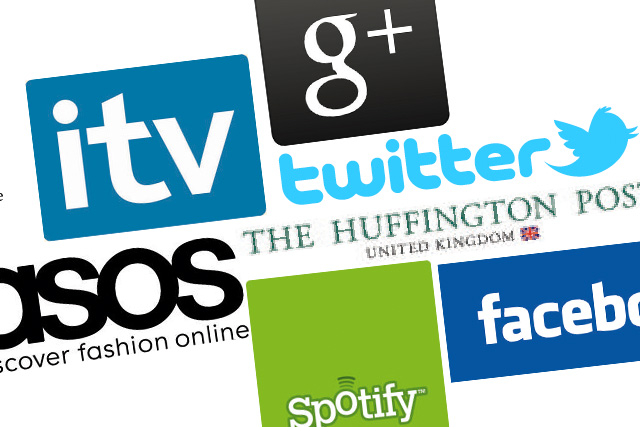
While commentators have been talking of the death of the television industry for years, ITV has gracefully and deftly got on with creating compelling content and delivering value for clients. Its investment in quality drama and the creation of headline-grabbing scripted reality shows and family favourites have combined to result in a stellar 12 months for the broadcaster. Despite the tough economic climate, ITV delivered a relatively robust financial performance for the first nine months of 2011. Its total external revenues were up 4%, to £1.5bn.

Tapping into the social graph is still top of the agenda for the majority of UK marketers, and, as such, 'what are we doing on Facebook?' was again a perpetual question in 2011.
The site continued to develop its offering to brands, with the introduction of sponsored stories and a drive to boost online-measurement tools. However, continued concerns surrounding data privacy and the growing number of brands, such as Manchester United, that are creating their own social networks suggests that brands are still grappling with how best to use social media. However, in a fast-moving environment, where fickle user behaviour and volatile public perceptions are the norm, the sheer number of Facebook users and the depth of data that it provides to brands should not be underestimated.

The world's number-one internet search company has enjoyed a phenomenal year. Google's decision to allow handset manufacturers such as Samsung Electronics, LG Electronics and HTC Corp to use its Android software for free is helping the brand make the crucial transition from personal computers to mobile devices. However, despite the hype surrounding Google+, dubbed as Google's answer to Facebook, a report from ICM Research that covered 32,000 UK adults revealed that of the 17% of respondents who claimed to use the service, two-thirds were actually mistaking it for something else.

While every major UK retailer is aspiring to be a media channel in its own right, only a handful of brands have achieved this goal. As UK ecommerce sales continue to increase, ASOS has set the gold standard in how to realise this aim. From the innovative ASOS Urban Tour online viral video campaign, created by Bartle Bogle Hegarty, to continued investment in content across its magazine, Facebook, Twitter and ecommerce platforms, the brand has led the way when it comes to 'shopping as entertainment'. It reported a 66% rise in its first-half profits to £11.7m, driven by international growth.

Spotify's Facebook Playlist function, where everything you listen to is broadcast to your entire social network, may well be outing consumers' taste in music, but the integration with Facebook has delivered substantial marketing payback to the digital music service. The brand has accelerated take up of its paid-for services, with 2.5m registered paid subscribers as of November. The brand has also continued its international expansion apace with services launched in Belgium, Switzerland and Austria. It is now available in 12 countries.

This was a landmark year for The Huffington Post as it launched in the UK, its first site outside North America. In the words of co-founder Arianna Huffington, in many countries 'the revolution may not be televised, but it will be blogged, tweeted, posted on Facebook, uploaded to YouTube ... and covered on The Huffington Post'. The explosive growth of online social networking has changed how media is consumed; news and entertainment are no longer passively read, but instead engaged with. HuffPost social news has been at the heart of this shift. However, it was not all good news for the brand in 2011. Huffington, her website and AOL were on the receiving end of a £64.5m lawsuit from a group of bloggers unhappy that she sold The Huffington Post for $315m without paying certain contributors. The complainants claimed that an estimated 9000 people blog for The Huffington Post on an unpaid basis.

'I tweet therefore I am' would be an apt strapline for many of the UK's top marketers over the past 12 months. The social network, which has redefined what it means to 'over-share', has become a key channel for driving brand awareness and sales. While curmudgeonly marketing professors continue to insist that marketers have been collectively hoodwinked by the burgeoning socialmedia industry, several smart marketers and brands have been quietly reaping the rewards of a well-executed social-media marketing strategy. The popularity of Twitter is a trend that shows no sign of reversing any time soon. It announced this year that it now has 100m users worldwide, an increase of 82% on the previous year.



